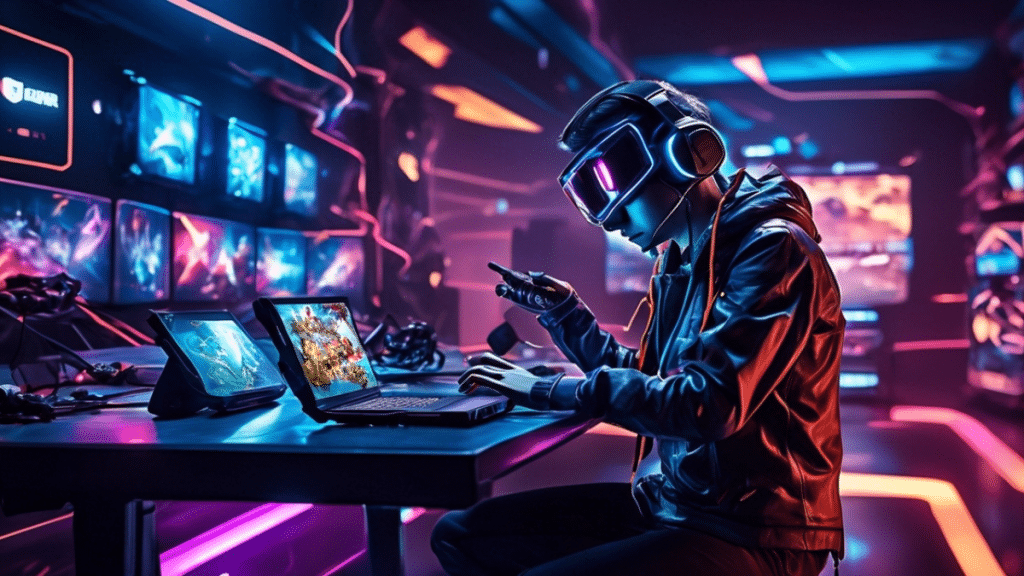Introduction
Online gaming in India has rapidly transformed from a leisure activity into a powerful digital ecosystem. Platforms like Tiranga Game and Diuwin are not just offering entertainment — they are also becoming tools for skill development, problem-solving, and even digital literacy.
In this article, we will explore how gaming contributes to learning, critical thinking, and future opportunities in the digital economy.
1. Gaming as a Modern Learning Tool
Traditional learning methods often focus on textbooks and lectures, but games introduce: Interactive learning through challenges and rewards.
Real-time decision-making that develops quick thinking.
Creative problem-solving, as players must adapt strategies to win.
Games like Tiranga and Diuwin encourage players to think beyond entertainment and use skills that benefit them in real life.
2. Development of Cognitive Skills
Research shows that gaming improves essential mental skills such as: Focus and concentration by keeping players engaged.
Memory retention, as players must remember patterns and strategies. Logical reasoning, developed by analyzing multiple scenarios.
These cognitive improvements are valuable for both students and professionals.
3. Digital Literacy Through Gaming
India is rapidly moving toward a digital-first economy, and gaming platforms are contributing by:
Teaching players how to navigate apps, payments, and security features.
Encouraging comfort with digital tools, especially for first-time users. Building awareness of online safety and responsible digital practices.
Platforms like Tiranga Game and Diuwin serve as entry points for millions of Indians into the digital world.
4. Collaboration and Social Learning
Many online games require teamwork, which helps players develop: Communication skills while coordinating with others.
Leadership abilities by taking charge of group strategies.
Conflict resolution, as players must manage differences during play.
This kind of social learning translates into stronger collaboration skills in schools, workplaces, and communities.
5. Financial Awareness Through Rewards
Certain platforms offer reward-based gaming. While this adds excitement, it also teaches players:
Budget management by limiting spending in games.
Risk awareness, understanding that rewards are not guaranteed.
Value of patience and strategy, where smart choices lead to better outcomes. Gaming becomes a practical lesson in financial decision-making for many players.
6. Motivation and Goal Setting
Games are designed with levels, challenges, and rewards, which naturally teach players how to:
Set achievable goals.
Stay motivated through progress tracking. Overcome setbacks with persistence.
These habits are useful not only in gaming but also in academics and careers.
7. Gaming and Future Careers
The Indian gaming industry is expected to reach $8.6 billion by 2027. This growth creates opportunities in:
Esports, where players can compete professionally.
Game development, involving coding, design, and creativity.
Content creation, with streamers and educators building careers around games.
Platforms like Tiranga and Diuwin game download are gateways for young Indians to explore digital entrepreneurship.
8. Challenges of Gaming as a Learning Tool
While gaming has benefits, it also presents challenges:
Addiction risk if playtime is not balanced. Financial risks if spending habits are unchecked. Health concerns like lack of exercise.
Responsible gaming practices are essential to maximize learning without negative effects.
9. The Role of Parents and Educators
To use gaming as an educational tool effectively, parents and teachers should: Encourage age-appropriate games with learning value.
Set healthy boundaries for screen time.
Discuss responsible digital use openly with children.
When guided properly, gaming can complement traditional education.
10. Future of Learning Through Gaming
The future of online gaming in India will likely merge more with education through: Gamified learning platforms for subjects like math and science.
AI-driven personalization, adapting challenges to each player’s level. Integration with formal education, making classrooms more interactive.
This evolution shows that gaming is not just play — it’s a serious tool for future learning.
Conclusion
India’s digital transformation is reshaping how people learn, connect, and earn. Platforms like Tiranga Game and Diuwin highlight the potential of gaming to develop cognitive skills, digital literacy, teamwork, and financial awareness.
By promoting responsible play and recognizing the educational value of gaming, India can unlock a future where learning and entertainment go hand in hand.
